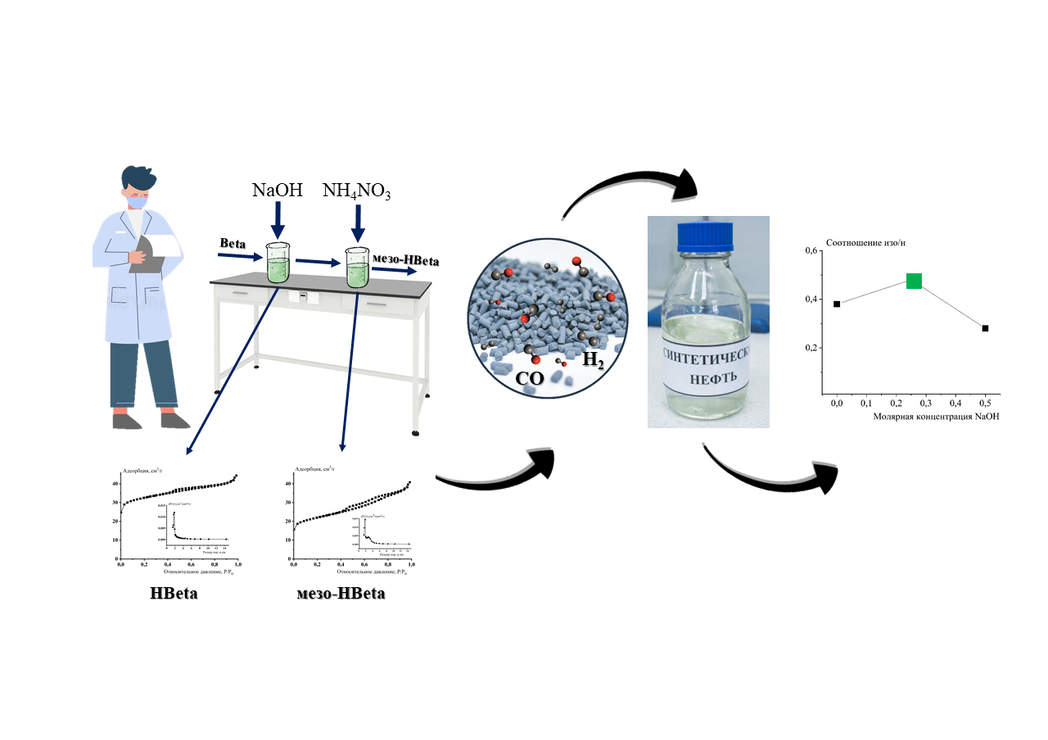In the Fischer-Tropsch synthesis, zeolite-containing catalysts make it possible to obtain high-quality synthetic fuel from CO and H2 in one stage. However, a significant disadvantage of using zeolites as an acidic component of the Fischer-Tropsch catalyst is the diffusion limitations of the transport of large hydrocarbon molecules in a porous system, which in turn leads to undesirable by-products and rapid deactivation. The use of zeolite with a hierarchical structure would reduce the spatial constraints inside the pores and increase the service life of the catalyst.
The Research Institute has developed a new bifunctional cobalt catalyst, which consists of a mixture of a cobalt catalyst Co-Al2O3/SiO2 and a hierarchical zeolite Beta with a binder. The use of this catalyst in the synthesis of hydrocarbons from CO and H2 made it possible to increase the proportion of iso-alkanes in the fuel by 20%, which leads to an increase in the octane number of gasoline and an improvement in the low-temperature properties of diesel fuel.

